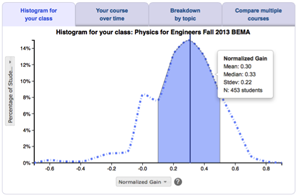
Developed by: University of Minnesota Physics Education Research Group








middle schoolhigh schoolintro collegeinter-mediateupper levelgrad school other

calc based

alg based

conceptual








Overview
What? Students work in groups using structured problem-solving strategy to solve complex, context-rich problems that are too difficult to solve individually.
Why? Unlike earlier traditional "group learning", Cooperative Group Problem-Solving rewards both individual and team accomplishments and allows all group members to rotate leadership roles. If implemented well, this method promotes collaborative skills valued in most work settings.
Why not? Assigning students appropriately to achieve heterogenous grouping is challenging at the undergraduate level. It takes time and effort to construct tasks with clear expectations for both individual and group responsibilities, and to teach relevant interpersonal skills required for group success.
Student skills developed
- Conceptual understanding
- Problem-solving skills
- Making real-world connections
- Using multiple representations
Instructor effort required
- Medium
Resources required
- Tables for group work
Resources
Teaching Materials
The University of Minnesota has created a free online archive of context-rich problems, where you can find problems for many topics in introductory mechanics and electromagnetism to use with cooperative group problem-solving.
You can also use the cooperative group problem-solving approach with many other types of research-based activities.
Research
This is the third highest level of research validation, corresponding to:
- at least 1 of the "based on" categories
- at least 1 of the "demonstrated to improve" categories
- at least 1 of the "studied using" categories
Research Validation Summary
Based on Research Into:
- theories of how students learn
- student ideas about specific topics
Demonstrated to Improve:
- conceptual understanding
- problem-solving skills
- lab skills
- beliefs and attitudes
- attendance
- retention of students
- success of underrepresented groups
- performance in subsequent classes
Studied using:
- cycle of research and redevelopment
- student interviews
- classroom observations
- analysis of written work
- research at multiple institutions
- research by multiple groups
- peer-reviewed publication
References
- P. Heller, T. Foster, and K. Heller, Cooperative group problem solving laboratories for introductory classes, presented at the The changing role of physics departments in modern universities: International Conference on Undergraduate Physics Education, College Park, MD, 1996.
- P. Heller and M. Hollabaugh, Teaching Problem Solving Through Cooperative Grouping. Part 2: Designing Problems and Structuring Groups, Am. J. Phys. 60 (7), 637 (1992).
- P. Heller, R. Keith, and S. Anderson, Teaching Problem Solving Through Cooperative Grouping. Part 1: Group Versus Individual Problem Solving, Am. J. Phys. 60 (7), 627 (1992).







